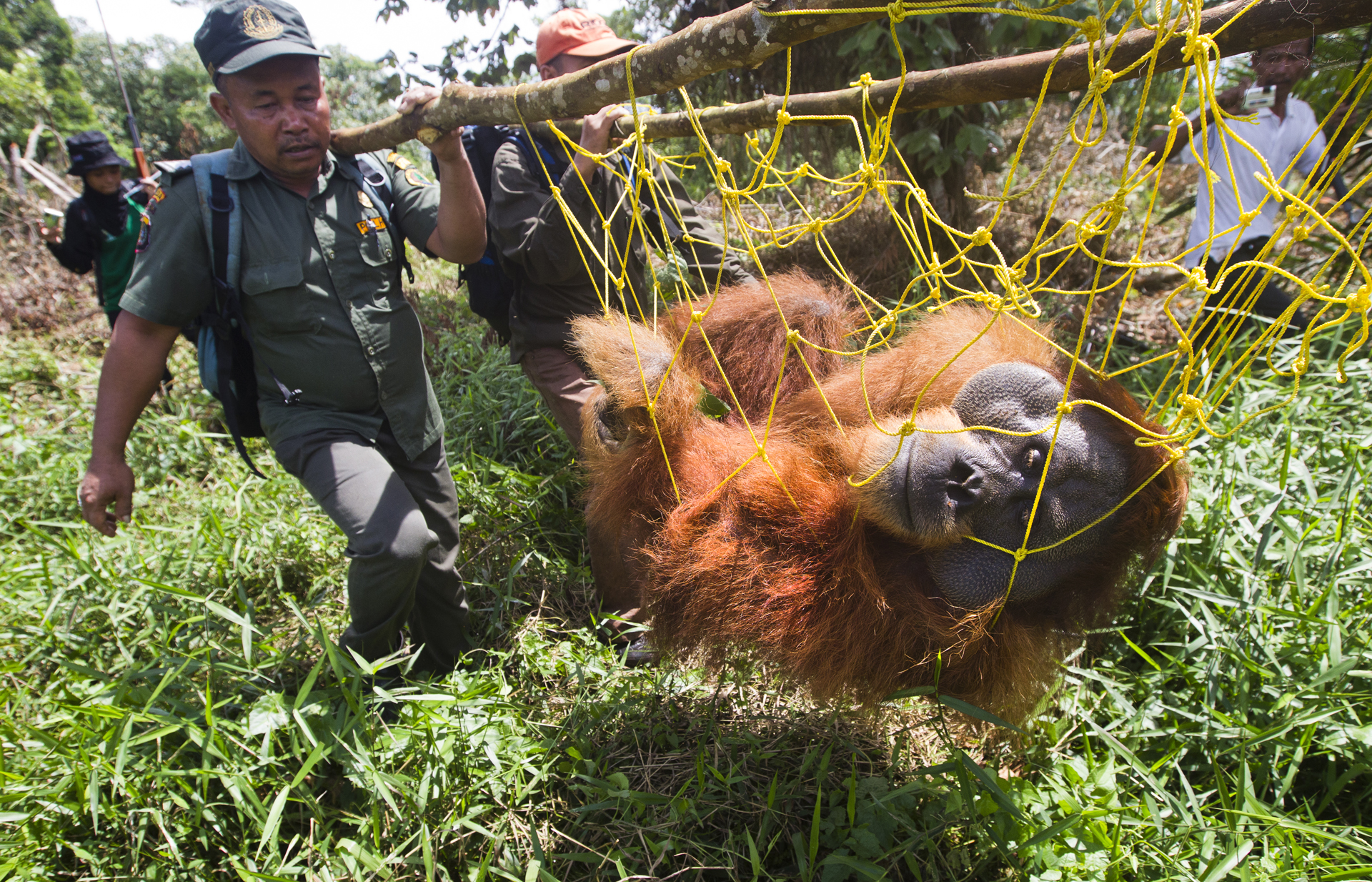Peatland destruction continues in ‘world’s orangutan capital’ within concession of palm oil producer PT. Surya Panen Subur II
Conflict Palm Oil production from a notorious palm oil company responsible for the destruction of the Leuser Ecosystem’s Tripa Peatland continues to hinder efforts to protect and restore remaining peat forests. PT. Surya Panen Subur II (PT SPS II) remains one of the most controversial palm oil companies in Aceh as it has decimated a hugely important area in the Tripa Peatland–– an area that has been called ‘the orangutan capital of the world’––to establish its plantation, including through illegal use of fires to burn and clear carbon-rich peatlands.
Despite PT. SPS II being on the ‘No Buy’ list of major brands including Nestlé, Unilever, Mars, & PepsiCo, it has failed to halt the destruction of peat forests within its concession area. This failure is a result of these brands––and their suppliers like Golden Agri Resources, Permata Hijau and Fuji Oils––refusing to engage with PT SPS II after they suspended sourcing from the company to ensure it paid penalties for its violations of laws prohibiting the burning of peatlands and advanced efforts to protect and restore peat forests within its concession.
This case demonstrates that the non-compliance protocols and remediation systems that palm oil buyers have put in place are ineffective as these companies are failing to engage with suspended suppliers to ensure they halt deforestation and restore areas destroyed after their 2015 deforestation cut-off dates. It also shows that a number of other brands including Procter and Gamble have failed to announce a ‘No Buy’ policy on PT SPS II on their grievance lists and continue to source from the parent company of PT SPS II ––the Amara Group.
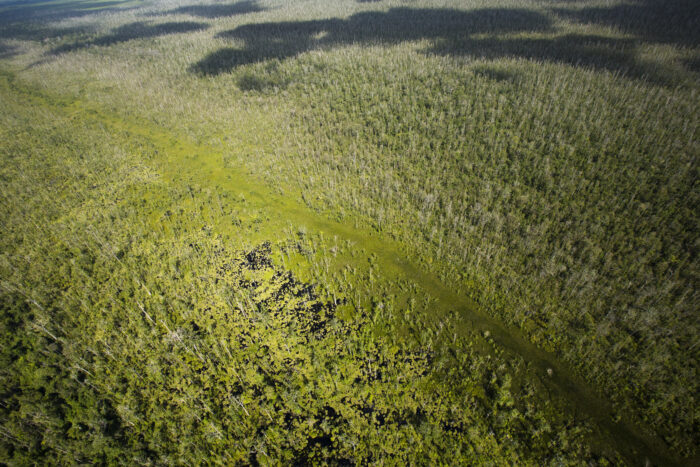
RAN has repeatedly exposed PT SPS II for its legacy of forest destruction and for its failure to resolve conflicts with communities and address the ongoing burning and clearing of forests within its palm oil concession. Many media outlets have reported on the company’s failure to adhere to Indonesian laws. Sanctions have been applied by the Indonesian Ministry of Forestry and Environment and the Supreme Court for its illegal burning and degradation of the Tripa peatland. To date the compensation required by the court has not been delivered, nor has the environmental restoration of burnt areas been undertaken.
Satellite analysis conducted over the past year shows that forest loss persists within PT. SPS II’s concession area and the remaining peat forests continue to be deforested for new oil palm plantations. PT. SPS II’s concession covers over 13,000 hectares of peatlands. Since 1997, the peat forest within the area has been reduced to 3620 hectares to make way for the oil palm plantation. In the past 5 years alone, 323 hectares of peat forests have been cleared. During this period the concession changed its name from PT. Agra Para Citra to PT. SPS II when it was taken over by a subsidiary of the Jardines Holdings group called PT. Astra Agro Lestari. Since then it is reported to be owned and controlled by the Amara Group. A further 20 hectares have been cleared since the beginning of 2022. It is alarming that despite over a decade of controversy, peat forests continue to be destroyed within PT SPS II’s concession.
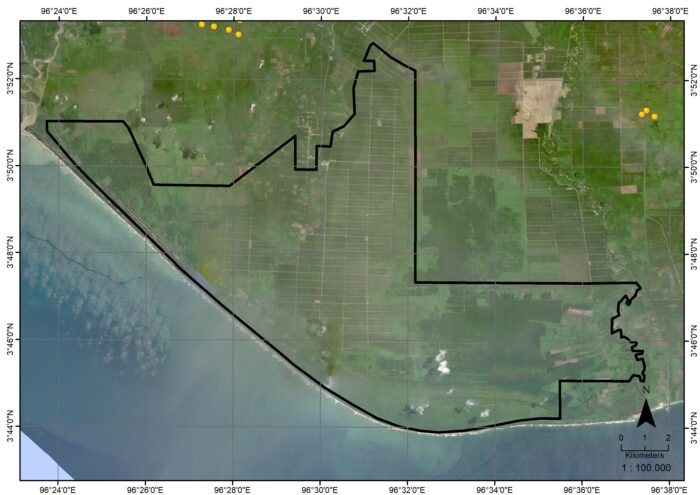
Satellite image showing PT. SPS II’s palm oil concession. The remaining peat forests can be seen surrounded by oil palm plantations. May 2022.
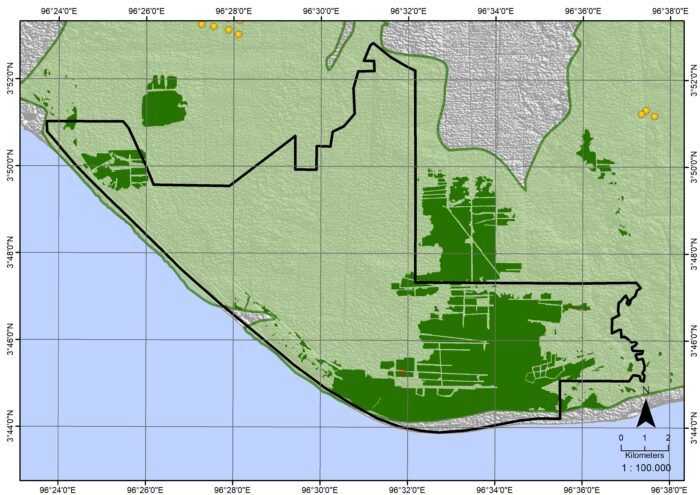
Forest loss shown in red inside PT. SPS II concession. The patterns of forest loss and canal development show Tripa’s remaining peat forests are on the trajectory of ‘death by a thousand cuts’. May 2022.
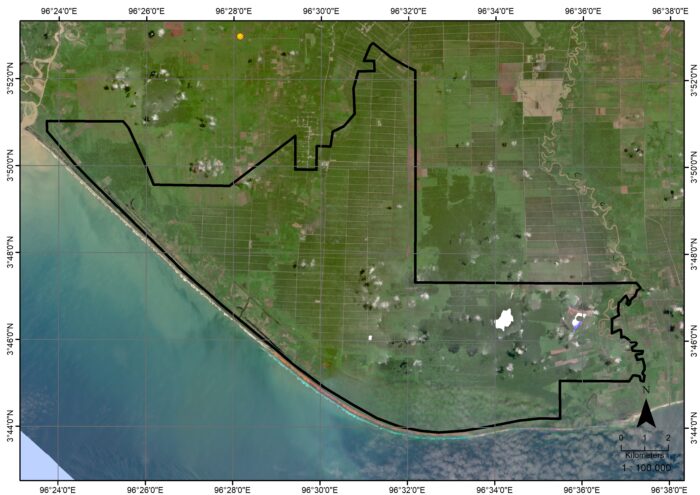
Satellite image showing PT. SPS II’s palm oil concession. New clearings can be seen towards the eastern boundary. April 2022.
Vast areas of peatlands and lowland rainforests stand to be protected if major buyers engage with PT. SPS II––and all current and potential future suppliers of palm oil in Aceh––and encourage them to implement strategies to halt oil palm expansion into forests and peatlands within their concessions, improve palm oil production practices to align with No Deforestation, No Peatland and No Exploitation (NDPE) benchmarks, and support solutions that center local communities in efforts to advance rights-based protection and restoration of forests and peatlands.
Protecting remaining peatlands is also important as a key component of Indonesia’s efforts to reduce emissions through nationally determined contributions (NDCs). It is critical that governments work together with stakeholders to secure rights and alternative livelihood opportunities for customary owners of the life-giving lowland rainforests and the carbon rich peatlands of the Leuser Ecosystem located in the Tripa, Kluet, and Singkil-Bengkung-Trumon regions.
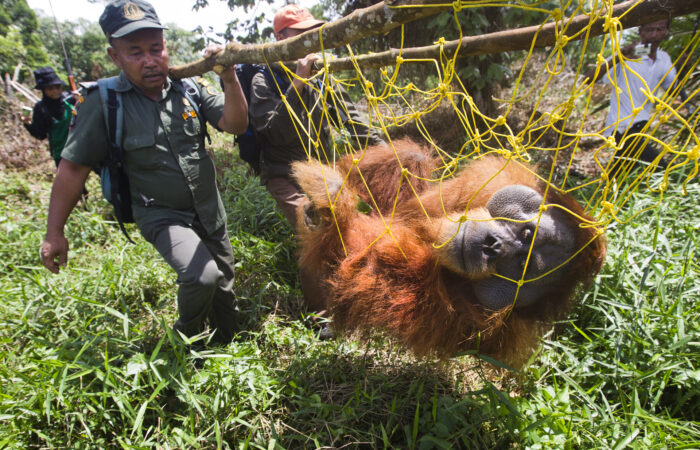
PT. SPS II oil palm development has decimated habitat for Sumatran orangutans resulting in the need to rescue individuals. This image is showing an adult male orangutan that was rescued from Tripa peatland Credit: Paul Hilton.
